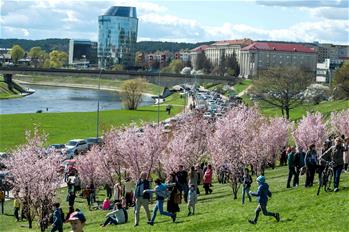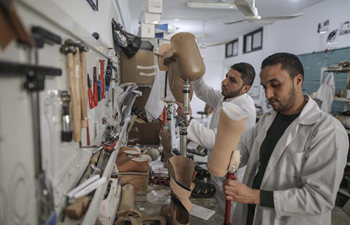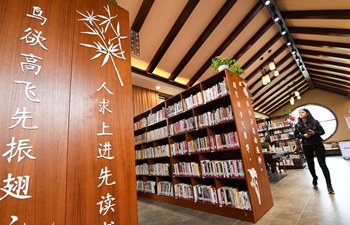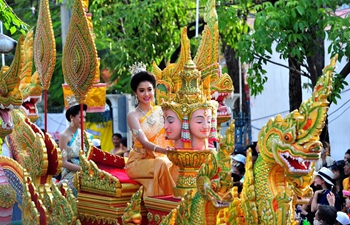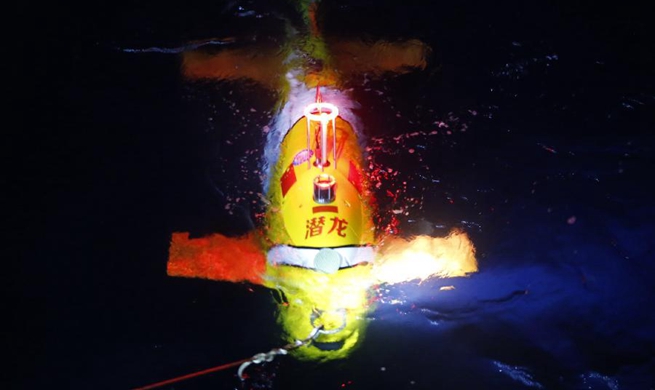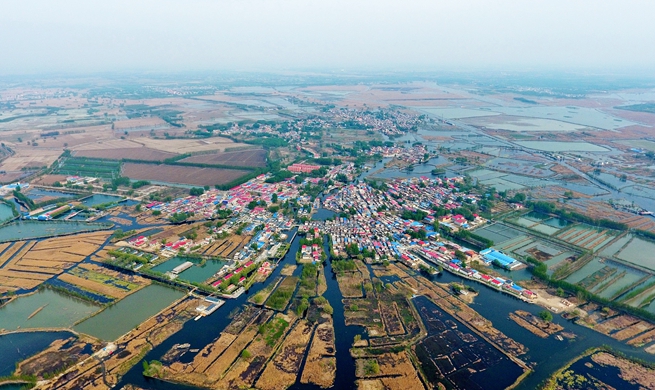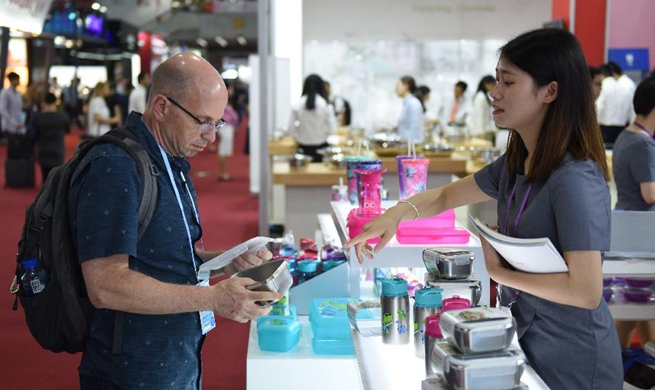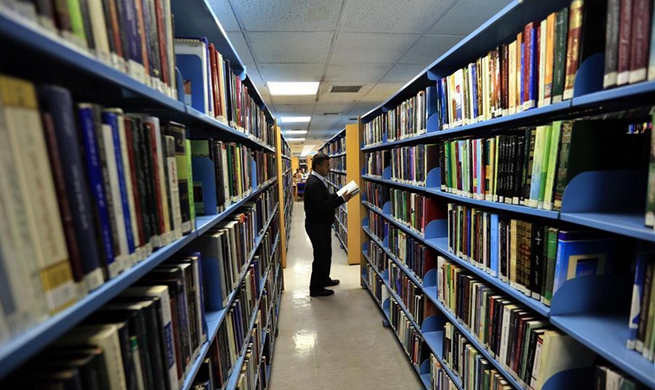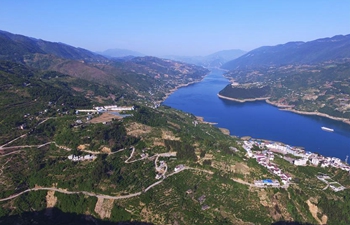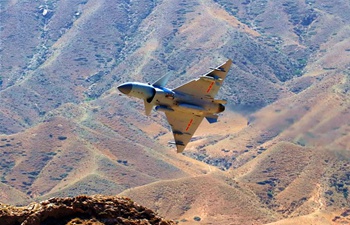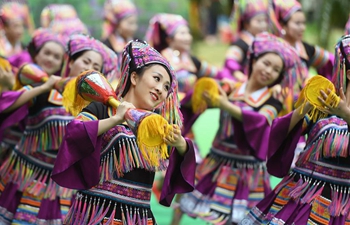RAMALLAH, April 23 (Xinhua) -- Palestinian observers warned Monday of the decision of the Palestine Liberation Organization (PLO) to convene the Palestinian National Council (PNC), the organization's parliament in exile, amid ongoing Palestinian political division.
The PNC, which is the parliament of the PLO in exile and the highest Palestinian legislative body, includes 750 members, who represent Palestinian factions and political powers as well as unions and other social organizations in the Palestinian territories and abroad.
In March, the PLO executive committee called for convening the PNC on April 30 in the West Bank city of Ramallah, the political capital of the Palestinian Authority.
Ahmad Majdalani, member of the PLO executive committee told Xinhua last month that the executive committee called the current PNC members to convene in order to elect a new PLO executive committee.
He mentioned that both Islamic Hamas movement and the Islamic Jihad group, two Palestinian parties with Islamic backgrounds, will not join or participate in the PNC meeting because it is just a meeting for the PNC regular members, where the two groups are not represented in the PLO.
In addition to the two Islamic parties, the left-wing Popular Front for the Liberation of Palestine (PFLP) announced last week it will boycott the upcoming session of the PNC.
The PFLP said in a press statement that it will boycott the upcoming PNC meeting, despite "it's keenness on the role, status and representation of the PLO."
It also said that the PFLP has made efforts to hold a unifying PNC session, hinting at the current impediments facing the internal reconciliation process between rival Fatah and Hamas parties and the absence of the diaspora representatives.
Since the PNC was found, it held 22 sessions; the last one was in Gaza in 1996 and then was held in Ramallah in 2009.
Hani al-Masri, a West Bank think-tank member and political analyst, said the convening the PNC meeting under a broad boycott and the absence of about a third of its members threatens to strongly perpetuate the ongoing Palestinian division.
"The insistence on holding the PNC meeting amid the boycott of major political powers and other smaller factions could worsen the already ongoing internal division," he told Xinhua.
Palestinians have been suffering from an internal split since mid-2007, after Hamas took control of the Gaza Strip by force following routing forces loyal to the Palestinian Authority.
Many understandings and agreements, mostly sponsored by Arab countries, failed to put an end to the internal Palestinian division.
The reform of the PLO and convening the PNC with the participation of all factions have been among the most controversial issues of the Palestinian split.
Al-Masri proposed that it would be better if the PLO calls for an extraordinary meeting of PNC to discuss one item, which is filling vacancies by electing new members of the PLO Executive Committee and immediately initiating preparations for a unified national council within a short period of time.
He added that the proposal will satisfy all parties as it will achieve part of their demands as Fatah Movement, the largest PLO party, will achieve the renewal of the leadership and legitimacy, while Hamas, the group that rules Gaza, will be present as an observer through its deputies.
"Independents and other factions will find themselves able to participate later," he said.
Meanwhile, Gaza-based writer and political observer Akram Atallah told Xinhua that the PNC suffered from a notable decline for not being held periodically.
Atallah added that the PLO does not enjoy its previous influence due to divisions over the role of the umbrella group.
He pointed out that the PLO has been subjected to a number of factors and conditions that led to a decline in its status in the Palestinian arena.
The control of the Palestinian Authority on most representative institutions of the Palestinians such as embassies, funds, delegations, conferences and missions, minimized the role of the PLO, he noted.
"The organization is in a dire need of re-activation and renewal of its leadership so it could regain its status as the sole representative of all Palestinians," he said.






